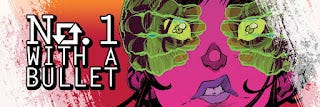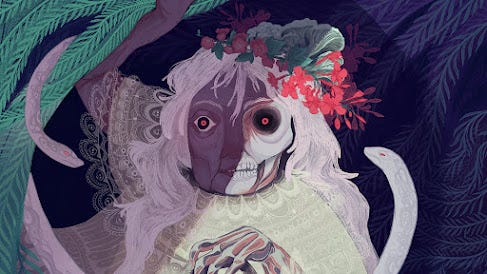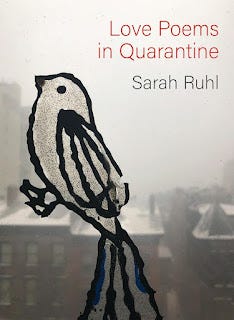.
I'm astonished to realize that this list includes an Australian classic as well as Ted Bundy. Not because I'm surprised I read these things or because I have forgotten that I did, but holy smokes. Those books feel so, so long ago. And, I mean, it has been forty-plus days. I suppose the Bible would tell me that's a long time. So maybe it's okay to feel that it is.
One side effect of making these posts (since 2007!) is that I might be measuring time—my life—in books.
There are worse ways, I'm certain. Better to throw books into the darkness.
.
041) The Stranger Beside Me: Updated Twentieth Anniversary Edition by Ann Rule, finished April 9
I picked this up because of Murder Book (#27). The Stranger Beside Me was the first true-crime book she reads and it's arguably the book that created the modern ideal for true crime. First published in 1980, then updated in 1986, 1989, and (the one I read) 2000. Those editions add 82 pages.
Ted Bundy is the first criminal I remember hearing about. Circa 1986, I remember a woman I knew and trusted speaking with absolute hate and venom, hoping that Ted Bundy would die. I remember how I felt, hearing this.
I don't remember his actual, successful execution, even though I was reading the newspaper by then.
Ann Rule received a contract from Norton to write about the disappearing women in Washington long before Ted Bundy was identified. But after she had already come to know him as they worked a crisis hotline together. The awkward and ethically suspect position this put her in as her reporting and this book turned her into a phenomenon is a fascinating subtext to consider.
I'm not sure it's possible to live in America over the decades I have and not know the general shape of Bundy's story. But Ann Rule's telling is very human. It's as much a memoir of her believing in him to being ready for him to fry.
We only have so much patience for monsters.
perhaps three weeks
042) Huda F Are You? by Huda Fahmy, finished April 13
I like that this is a comics memoir of a hijab-wearing American girl. But I didn't really like the art (I didn't like the Extra Credits-like floating hands, but issues with perspective and the like just felt sloppy) and I didn't feel like it had much depth. It's great for 12-year-olds but I don't think it's apt to appeal to anyone older. Which is a shame because I think the Muslim American voice is an important one, right now. In most of the country, they are seen as indelibly foreign no matter what. And since we're all accusing everyone else of failing to be properly American, those who are most in that situation surely have something to teach us.
as I stood
043) Enos, Jarom, Omni: a brief theological introduction by Sharon J. Harris, finished April 25
This is split into three parts, one for each book. Sensibly, really. To start at the end, I wasn't really sold by most of the analysis and argument for Omni, but the conclusion, combining Latter-day Saint notions of Jesus and family into one great whole, was excellent.
Jarom was my favorite. The thesis that most intrigues was that Jarom lives in the middle. We live in the middle. The Church is established. The finale is (likely) far away. We're muddling around in the in-between, living our lives best we can. We live in the short books. And this elevates Jarom's demure silence from the least interesting portion of the Book of Mormon to something deeply personal and relevant.
As for Enos, she made some points about its chronology I hadn't thought much about, but the highlight is her exploration of the concept of self-emptying. That's worth checking out. It provides a new way to make Enos a path forward.
a month
044) The Orphan Master's Son by Adam Johnson, finished April 27
This story of North Korea won the Pulitzer a decade ago and keeps coming up as a book people remember and were glad they read.
I feel the same. I'm certain I will remember parts of this book a long, long time. These details and images from a real dystopia (mixed accuracy but all so real in context) are not easily shaken off.
The novel's structure is curious. The first part, much shorter, runs like a proper novel. The second and much longer half weaves three kinds of storytelling together from which you see different things through different lenses and thus the reader has to assemble them.
I'll admit part of the reason I took so long to pick this up is because it's a novel about Korea by a guy named Adam Johnson. But I was one over.
Seems to matter that Kim Jong Il died just as the book was released.
Anyway, it's all the worst parts of Nineteen Eighty-four rendered not just believable but contemporary. You'll believe it is happening Right Now.
maybe three weeks
045,046,049) The Mysteries by Bill Watterson and John Kascht, finished April 29, 30; May 3
I'm leading a discussion on this for the faculty book club this week so I thought I'd try to fit in daily rereads. I kinda love this book but I'm still not sure how I want to think about it. The turn it takes is remarkable.
a few minutes per
047) The Children's Bach by Helen Garner, finished April 30
I was more interested in Monkey Grip but this is the one my library had. When it arrived, I wasn't even going to take it home but then I saw how short it was so I decided to give it a shot.
Garner's voice is calm and melodic. She flits through time without worrying to much about us keeping up. She's like a more reasonable Weetzie Bat. And the people are likable normal people who find themselves genuinely sucking in truly awful ways.
I get why people love it but I don't feel compelled to recommend it to anyone.
two days
048) No. 1 with a Bullet by Sehman/Corona/Hickman/Wands, finished May 2
At the end of this graphic novel you'll find a series of interviews with women who are writers, cosplayers, lawyers, gamers, etc. The interviews reveal powerful women who have bumped into the awful ways men treat women. It's worth mentioning these interviews don't come off as preachy or anything. It's just the way it is.
The comic is about a women who was filmed having sex without her knowledge. The video leaks and now the world has come down on her. There's violence and mystery and startling imagery. It's near-future fiction (by which I mean like three years from now) and there's stalkers and LSD and Johnny Cash quotations (an excellent choice, incidentally) and dirtbag lawyers and good cops and crummy friends and ambiguous lovers. It's a fine entertainment and, like the interviews, it explores heavy and important issues without telling you what to think. Not that you won't arrive at the correct conclusions, but it lets you find them all on your own.
Most of the story I felt we were falling into some artsy cliches, but by the end it's revealed to be doing interesting things with those elements. The ambiguities at the end do seem a little overdone. It's not a perfect book. But a worthy read.
about a week
050) Over Seventy by P. G. Wodehouse, finished May 7
This sorta autobiography was a brief and gratifying read. Made me laugh many times. There were three spots where a word choice was made to allow casual racists to laugh in superiority which was offputting, and the world-these-days parts are very 1950s, but otherwise the book has aged well.
The conceit is somebody from some little newspaper wrote to ask him a couple questions for a column about folks over seventy and Wodehouse rambles and tangents his way through answering them all.
I tracked the book down because I heard it had an essay about footnotes. This is not strictly true. The foreword is about why the book doesn't have footnotes. But perhaps that is the same thing.
a couple weeks
051) The Happy Shop by Brittany Long Olsen, finished May 16
This is kind of a perfect Brittany book: sincere, fantastical, emotive, short.
one day then a few weeks then another day
052) Shades of Fear, finished May 21
Look, the bad news is this isn't a very good book. I don't regret backing it, but the end project is not that great.
But the fact is these kinds of anthologies fill a very important role is giving comics makers a chance to flex their muscles and discover what works. And a lot of really cool stuff is happening in these stories. They're all short enough that they end up not quite coherent, but all of them pull of at least one really cool moment with the art. Permission to experiment—before an audience—is what any young artists needs. And I suppose middle-aged schmucks like myself should be paying them to do so
So, as I said, no regrets.
But nothing here quite takes flight.
I sure hope they keep trying.
a couple weeks but really two or three days
053) Love Poems in Quarantine by Sarah Ruhl, finished May 21
I haven't actually finished a book of poems brought home from the library in quite a while. I don't know why this one made it over the finish line other than I liked the poems.
That they are all very short certainly did not hurt. (I am, after all, the founder of Quatrain.Fish.) Some of these poems are wonderful. Some are . . . not. But the average quality is high enough (and the average length short enough) to carry us through. That I remember very well the first year of covid certainly is a bonus.
What I'm most impressed by is Ruhl's ability to fit a meaningful volta in the smallest spaces. Well done, ma'am! But the little moments with children and dogs, sex and isolation, ring true. Plus, there's a goodly dose of humor. We appreciate that, don't we, folks?
a week, maybe







